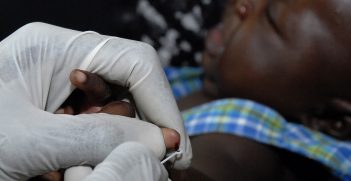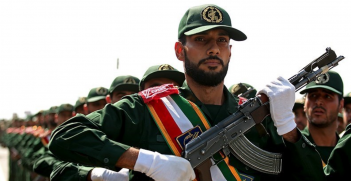Australia faces big challenges in chairing the G20
The challenge Australia faces as chair of the G20 this year is to reverse the widespread perception that the group is on the slide and not much more than an ineffective talking shop. Setting an agenda that is both short and manageable will be the key to success in Brisbane.
The next two-day G20 Summit in Brisbane is not until November 15, but the chief sherpa, Australia’s Heather Smith, is already up and climbing. She recently hosted a meeting in Sydney of fellow sherpas from the other 19 countries whose leaders will come to Queensland, while also meeting academics, business leaders, opinion formers and decision makers within Think 20 (T20), a cerebral group of thinkers from the nations that make up the G20.
A sherpa’s life
Dr Smith’s mobile phone is on such active duty that it is in constant need of recharging. The life of this deputy secretary in the Department of Prime Minister and Cabinet will not be her own again until well after the last farewells in late November, when she passes the baton to her counterpart from Turkey.
The term sherpa is derived from the experienced guides on expeditions in the Himalayas. This is appropriate, because, as a previous Mexican G20 sherpa reminds us, “it emphasizes the preparatory process, the gradual ascent to the summit”. This epitomizes the G20, where most of the work and the limited achievements will have taken place weeks before the presidents and prime ministers take off for Brisbane.
Meaningful summitry
As a veteran observer of such summits – and of the less representative G8 and its G7 predecessor – it is easy to be cynical as to their real value. The communiqué is usually drafted, agreed by officials and printed before the meeting starts. The texts tend to be platitudinous rather than precise, and often contain sentences identical to those used previously: “We remain committed to economic growth and free trade”.
That said, there is a real determination in Canberra that the Brisbane G20 should be different. As he left Sydney to attend the annual meeting of the World Economic Forum in Davos, Tony Abbott said as much: the G20 should not be a talkfest; it needs to make a “practical difference to the global economy”. Given the G20’s record in recent years, that is a big ask. However, the Prime Minister’s recent participation in the World Economic Forum is a promising start.
Another positive for Australia’s chairmanship of the G20 is that preparation began a year ago. Wayne Swan announced the Government’s $4 million support over four years for a G20 Studies Centre within the Lowy Institute for International Policy. This is headed by Mike Callaghan, a well-respected former senior Treasury official who also spent five years in Washington as an executive director of the International Monetary Fund and worked as chief-of-staff to former Federal Treasurer, Peter Costello.
Mr Callaghan has no illusions about the uphill task Australia faces in restoring credibility to the G20 — under attack from many in the G8 leadership, who resent the way it has assumed the central role this Atlantic-centric body once had, and equally disliked by those whose economies are below the line and left outside the club. Mr Callaghan believes that to succeed, the Brisbane summit “must be relevant”; to achieve this, the agenda should not be too long and should be tightly focused on major points of concern. G20 leaders have only a few hours together, have a limited attention span, and are, in many cases, trapped by a domestic agenda and media demand for punchy sound bites.
Lowy and Callaghan picked up an idea started by Mexico — the T20, in which think tanks and academics from G20 countries pool their ideas on important issues to be discussed within the G20 process. This is not a bad idea, because even if an issue does not make the final agenda – or the leaders’ briefs – the fact that it is widely discussed by opinion formers and thinkers within all 20 countries can often lead to constructive dialogue and subsequent consensus between officials.
But at the one-day Think 20 meeting I attended in Sydney in December, with participation from most of the G20 countries, it became clear that the range of subjects put forward for debate far exceeded any vague prospect of their ever being agreed upon, let alone reaching the summit agenda. Mr Callaghan knows this. So does Dr Smith, Jo Hockey, Andrew Robb, Julie Bishop and Tony Abbott. They are all aware that ‘agenda creep’ must be cut.
Framing the agenda
So what will be considered important? Finding ways of creating sustainable economic growth worldwide will be the prime topic. Each country might be asked to publish its own economic growth strategy well ahead of the November meeting, in the hope that the summit itself could focus on a coordinated approach. This sounds like good policy, until the outcomes start hitting domestic agendas – for example, Chinese companies building and part-owning Australian high-speed rail infrastructure.
Trade will also feature strongly. The Abbott Government has already made strides here with a free trade agreement with South Korea, which will greatly help Australia’s agricultural sector, and build relationships with our fourth largest trading partner. Another FTA with Japan is imminent. Peter Varghese, Secretary of the Department of Foreign Affairs and Trade, believes the way forward in trade is for those countries willing to do so to forge ahead with bilateral deals, thereby setting an example for others. It will be interesting to see whether two Obama proposals – the Trans-Pacific Partnership, and the US-EU trade deal – move nearer to conclusion.
Australia also wants to see some movement on major global infrastructure projects, with each country’s budgets divided into operational accounts (the budget) and a capital, or investment, account for big infrastructure projects. These would be financed by countries issuing long-term infrastructure bonds, linked to each project and available to international institutional investors. It’s a good idea, but it will take much preparatory work between now and November.
And then there is the issue of equity in global taxation, where Australia has been one of the losers to big corporations who have (legally) minimized their corporate tax obligations through a series of complex devices and the use of tax havens. Former Assistant Treasurer David Bradbury, who lost his seat at the 2013 election, had been involved in much useful work here. Current Assistant Treasurer Senator Arthur Sinodinos confirmed to me that the Government would be putting firm proposals on taxation of international companies to the G20 meeting, after detailed discussions with finance ministers between now and November.
These subjects alone could occupy the entire summit, and still not lead to resolution, without addressing the many other issues on the global agenda, such as poverty reduction, financial stability, food security, climate change, the future of international institutions…
The task now is framing an agenda that is manageable, works and has at least a chance of achieving some results. If the sherpas can get that far, then it’s possible that Brisbane 2014 can save the G20’s faltering reputation.
Colin Chapman is President of the AIIA in New South Wales, and a former BBC economics correspondent and senior executive at the Financial Times, London.





